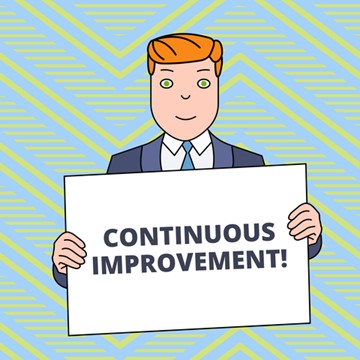by virtualworks | Aug 1, 2022 | Business, business growth, daily lfe, holiday, Leadership, Mastery, Productivity, Time Management
 In a previous blog post, we discussed un-plugging from the virtual world including from media, and from work, as I do in the summer to take some much-needed time off at a cottage in the remote Quebec countryside for a week of peace and quiet. Upon my return, everything is still functioning, even though I’ve taken a full week to un-plug.
In a previous blog post, we discussed un-plugging from the virtual world including from media, and from work, as I do in the summer to take some much-needed time off at a cottage in the remote Quebec countryside for a week of peace and quiet. Upon my return, everything is still functioning, even though I’ve taken a full week to un-plug.
This year though, COVID came for me just prior to leaving so I didn’t do much more than sleep. Usually, though, I spend the entire week reading, knitting and writing. I love to kayak on the lake in the mornings when the water is still. It’s very peaceful and lets me just think about things without all that daily noise in my head. Some might say that I’m downright lazy during my week off. Is that okay? Yes, it certainly is because I deserve it. Do I miss technology when I’m at the lake? No, because I don’t need it there.
For those that are making the attempt to relax and take a break from work and media, but don’t want to travel, a ‘staycation’ may be an option. Whether by themselves or with family in the house there are a variety of ways to relax such as spa-at home days, reading, creative projects, music, further learning or games. No matter what the relaxing activity there are plenty of ideas out there to get the staycation started!
While the suggestions below may require some online research to get started, once the information is found, there is a choice to shut off this technology or enjoy it depending on the person. Maybe they are a true “no tech staycationer” or maybe they “un-plug” while playing online games, watching movies, listening to music and so on.
In the spirit of getting the staycation underway, here are a few resources if you are not sure what to do:
Want to relax in your personal spa? The PennyHoarder has some fantastic ideas for creating materials for a spa at home and as a bonus creating some of these can be considered a little project!
Do you have a creative side and would love to work on something, but are not sure what? DIY Projects has a few ideas to check out. Maybe you just want to enjoy art or music from home, but don’t have access to great works of art or music. Check The Guardian’s list of virtual museums and art galleries, Billboard’s and Glamour’s lists of virtual concerts and performances. Even orchestras have live performances online as listed on classicalfm.
Do you just want to learn something to keep your brain moving or perhaps you miss the library completely? There are a number of open university courses out there to get you thinking and OpenLibrary is an excellent online library if you are just looking for something to read.
Or maybe you want to get up and get moving, take a look at Runtastics 28-day at home workout.
It doesn’t matter how you “un-plug”. What matters is that you bring yourself to a place of relaxation and contentment, while staying safe.
by virtualworks | Jun 6, 2022 | Business, Case Study, Customer relationships, daily lfe, Leadership, Mastery, Outsourcing, Productivity, Time Management

I was in denial. My driveway needed re-sealing for quite a few years and I was really hoping the night fairies would come and do it for me. Alas, no. A couple of summers ago, I thought I’d do it myself: get the bucket of black goo and the roller from the DIY store and spend time in 35C heat rolling said black goo on my 2 cars wide and 2 cars long driveway. I never quite got around to it. I’m not a procrastinator but somehow I always managed to justify my lack of dedication to this part of home ownership.
About a month ago, a young man from 2 streets away knocked on my door and told me that he had a new business re-sealing driveways for the summer. He was studying accounting at university and thought this type of business venture would help him in school. (Great idea!)
I asked him how much to do the job and he said $195 tax in. I had to think about it – that’s quite a bit of money just to roll out a bucketful of black goo. I looked at my dismal driveway and thought woefully how long I had been putting off the task. I called him back to say that I would take him up on his offer. We scheduled the work for the following day.
My hero came over close to supper time the next day and while I was preparing the meal, I checked in on the progress by periodically going back and forth between the kitchen and the living room. The first thing I saw was him power spraying all the weeds out from between the driveway and the curb. I didn’t even think of that. The next trip to the living room I saw him power spraying the entire surface of the driveway. I would have swept the driveway; I didn’t even think of power spraying it. Then he taped off the entire perimeter of the driveway so that no black goo would get on the lawn. After that, he manually filled in all the cracks and holes (there were many). Only then did he roll out the black goo.
By the time he finished, that $195 was the best money I ever spent for value of work. Not only did he save me the labour of doing that type of work in the summer’s heat, he also provided value because he knew what he was doing. He’s done a lot of driveways and has a level of expertise that I will never have (nor wish to have). Sure, I could have done it, but outsourcing this task yielded much better quality results and freed up my time. Now I have this task off my to-do list.
There is value in everything we do, both personally and professionally; our expertise in what we do daily provides value to others. What do you need help with in your daily life? In my view, it’s worthwhile seeking out resources to help you get things done, things that you don’t know how to do, or have no wish to learn how to do, and free up your time on what matters most to you. Agree? Disagree?
by virtualworks | May 9, 2022 | Business, Case Study, Marketing, Mastery, Outsourcing, Value Based Fees

Did you hear the one about the customer and the plumber? This is a classic anecdote that applies to more and more industries and professions as we realize that providing services is not about trading time for money.
Customer: “Hello, I have a problem with my bathroom plumbing and I need you to come over.”
Plumber: “What seems to be the problem?”
Customer: “Well, when I flush the toilet, the kitchen faucet drips.”
Plumber: “I’ll be over this afternoon to have a look.”
The plumber arrives, inspects the plumbing in the house, checks out a few things, flips a few switches, tests the system and fixed the problem in about 15 minutes. He presents the customer with the bill.
Customer: “$600 to do 15 minutes work?!?!”
Plumber: “It took me 10 years to learn how to do that.”
There’s more to services than just trading time for money. What about all the years it took to get your education, training and credentials? What about your life experience? The time and effort it took you to build your organization? You’re worth so much more than dollars per hour. Think about it and share your comments.
by virtualworks | Feb 13, 2022 | Accomplishments, business growth, Leadership, Mastery, Productivity, Team Work, Time Management
Many organizations start with a great idea that will change the world and, through time and effort, they will evolve to be the best in their field. Though you might not think of it these terms, but what they’re doing, what they’re actually reaching for, is “mastery”.
You know this, because you have steered your non-profit through adversity and success, put in the hours of work, training, research, and sweat to make a difference. I don’t have to tell you that becoming the ‘master of business’ requires hard work. Malcom Gladwell would tell you that it takes 10,000 hours of “deliberate practice” to master a skill.
Imagine watching the best Formula One driver, or the most incredible ballerina. They make their chosen trade look so easy and accessible. It is only when you attempt to duplicate the complex beauty of the Dance of Sugar Plum Fairy (reported to be one of the most difficult roles to dance) or harness 1000 horsepower around a turn pulling 3 G’s in a Formula-1 car, you realize that just because something looks easy doesn’t mean it is.
And that may be true for something like ballet or the violin where the skill is quantifiable. Becoming a master of your non-profit or association is much more than “time in” on any endeavour.
As I look around there are any number of organizations providing services to their members, value to their donors, exposure to their sponsors in any number of ways. What separates the successful from those who have become a master at their industry is a gritty combination of discipline, hard work, humility and generosity. Most of us would agree with the first three, but generosity?
There’s an old adage, “if you want to learn something well, teach it to someone else”. In order to teach well, it requires that you face your presuppositions about things, unearth those ideas that you didn’t even realize you believe. Being the master of any subject (even one that you invented) requires you to be able to objectively look at whatever you’re doing and seeing ways it can be improved. To teach someone else what you know requires a certain generosity. After so many years of ‘doing you’, that can be difficult, but that generosity has the reward of unearthing flaws in your system in order to improve them, and you cannot master what you think is perfect.
Now expanding on the generosity of teaching and of talent development, you gain the opportunity to:
- Invest: You are investing time leading to growth as an organization and investing in another person. How great is that?! Can you imagine if Bill Gates just did it all himself without bringing in a team? Bringing in others to be a part of your team grows your organization and its mandate.
2. Discover Improvements: By letting others in on your system of doing things and teaching them how to do what you do they may discover and share new ideas and improvements you had not initially thought of. (another ‘set of eyes’ is always a good thing)
3. Trust and Grow: By trusting your team to deliver, instead of always just yourself, you free up time to do more and expand.
So while you’re changing the world, be generous, develop your talent base and grow!
by virtualworks | Jan 16, 2022 | Accomplishments, Business, business growth, Customer relationships, Leadership, Mastery, Public Speaking, remote meetings

Being invited to speak at an in person or virtual event can be a wonderful honour given to the potential speaker by those who want to hear the speaker’s message and share it with others. However, for some, it can be a great cause of anxiety and fear, with the thought that all those eyes will be on them and focused on everything that’s said.
The ability to be a good speaker doesn’t always go hand in hand with the ability to do it easily. It takes practice. I have spoken with many who are fantastic speakers, but they are extremely nervous before hand to the point of being physically ill. Just remember, if you are in this group of uneasy speakers, you’re not alone! So, then what? What can be done to make this easier, or at least get you through it?
Keep these few things in mind when getting ready to speak to a group when you may be feeling less than confident:
Your audience is there because they want to be: For the most part, people attending a conference, meeting or lecture are there because they chose to be there, they want to hear your message and will be supportive of your efforts. Attendees tend to not be judgmental, are not making snap decisions about you based on your haircut, clothes etc. and are there to hear what you have to say, even if they’re there not by choice (perhaps they have been instructed to go by their boss), these attendees, will most likely just listen politely.
Change your worry to excitement: This is a tough one because you’re so focused on the negative aspects of what you think may happen. What if you switched your thought process and redirected it to excitement at the possibilities of doing a great job? Go into it with a positive outlook and understand that even if it doesn’t go the way you want, you still did it! You would have accomplished a major step in your own personal development and that’s awesome!
Practice and prepare: Practicing the presentation before hand helps a lot. Try getting a small audience together or even just practice by yourself. Give yourself a few days in advance to do this. Go through and read your presentation, re-write if you have to and make a few speaking notes for yourself as a guide. By taking these steps to practice and prepare, you’ll be more familiar with the material, therefore making it easier to engage in a conversational type of presentation and making eye contact with your audience, instead of looking at your notes. Another great place to practice amongst a supportive group would be to contact your local Toastmaster’s group.
Know the environment: If you’re in-person, make yourself familiar with the presentation venue and environment so you’re more comfortable before speaking. Arrive ahead of time, sit in various places in the room for a few minutes to get different visual perspectives and get settled in. Own the space.
Interact with your audience: If you’re worried about the audience getting bored, make sure to leave room for people to ask questions. Listening to their questions can give you a little break as well to take a drink of water and re-group as needed. This can also help you gain some extra time on your presentation if it seems to be too short. Remember to be welcoming of questions and stay calm.
Take care of yourself: Get plenty of rest, eat well and taking the time to pamper yourself a little before the presentation day provides a little extra boost and don’t forget to give yourself a little time to use the restroom before the presentation. Make sure you have some water by your side to take sips to avoid a dry mouth while speaking. If possible, make sure you’re already standing up a few minutes before the presentation, so you don’t have to maneuver around obstacles to get to your place.
Are you in the audience? Perhaps you are reading this and are not a speaker, but frequently attend presentations. Why not do what you can to make the speaker feel confident and perhaps let them know what you enjoyed in their presentation? We’re all in this together. No matter the size of the group you are speaking to, you can do it and there are people in your audience that are in your corner. Be excited for this opportunity – you’ll do great!
 In a previous blog post, we discussed un-plugging from the virtual world including from media, and from work, as I do in the summer to take some much-needed time off at a cottage in the remote Quebec countryside for a week of peace and quiet. Upon my return, everything is still functioning, even though I’ve taken a full week to un-plug.
In a previous blog post, we discussed un-plugging from the virtual world including from media, and from work, as I do in the summer to take some much-needed time off at a cottage in the remote Quebec countryside for a week of peace and quiet. Upon my return, everything is still functioning, even though I’ve taken a full week to un-plug.




Recent Comments